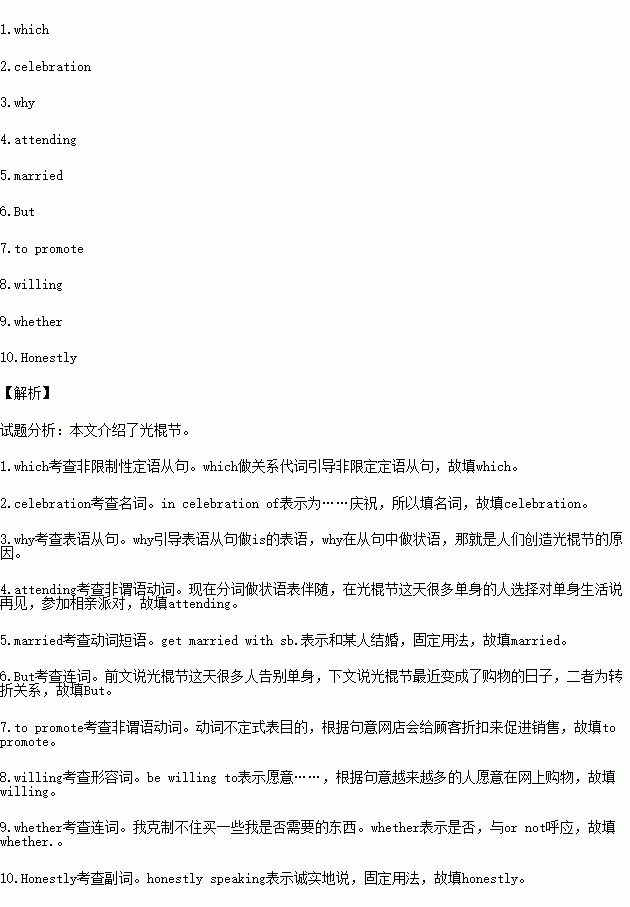��Ŀ����
�Ķ�������ϣ��ڿհ״������ʵ�������(������3�����ʣ�)�������ڵ��ʵ���ȷ��ʽ��
Singles�� Day falls on November 11th every year in China, 1. is recognized as a day for people who have no girlfriend or boyfriend. Couples and lovers have Valentine��s Day in 2. (celebrate) of their love, but how about the singles? There must be a day they can celebrate even without a partner. That��s 3. people created Singles�� Day.
On Singles�� Day many singles choose to say goodbye to their single lives, 4. (attend) blind date parties, and some people even decide to get 5. (marry) with strangers. 6. this day has recently become more of a time for shopping, because many shops online will give customers great discount 7. (promote) their goods.
More and more people are 8. (will) to shop online to get what they want, and I am one of them. I just can��t help buying things 9. I need them or not. 10. (honest) speaking, some of the things that I bought have been put aside forever in my closet.

